Table of Contents
This article has two parts, one that explains what Nvidia’s Max-Q initiative means for existing and future gaming laptops, and a second one that gathers all the Max-Q notebooks available out there, in a periodically updated list.
If you plan to jump straight to the list, here it is: the GTX 1080 Max-Q high-performance options, the GTX 1070 (most variants, thin and light, good performance) and the GTX 1060/1050 Ti models (more affordable) .
Nvidia’s Max-Q is an initiative that aims to slim down gaming laptops and make them more pleasant to use, by lowering their noise levels.
In order to do that, Nvidia provides OEMs with what they call Max-Q versions of the GTX 1060, 1070 and 1080 graphics chips, which in very few words are down-clocked variants of those chips running at lower frequencies, but with much lower TDPs as well, as it’s better explained in one of the tables below.
Let’s take a regular mobile GTX 1080 for instance, which runs at around 150 W. The Max-Q 1080 variant only needs between 90-110 W. This allows manufacturers to put the 1080 chip inside much slimmer and portable laptops, like the Asus Zephyrus or the Acer Predator Triton, which would otherwise not be able to even accommodate a full-power 1070.
However, the amount of performance is going to vary between the Max-Q chips, based on the exact implementation each OEM chooses to go with. Given the 1080 Max-Q chip can have TDPs between 90 and 110 and clock speeds between roughly 1100 and 1300 MHz, that means there will be performance variations of as much as 25% between implementations, which can get confusing for potential buyers.
In other words, not all Max-Q laptops will perform the same, and while in theory a 1080 MaxQ chip sits between a regular 1070 and 1080 in terms of performance, in some cases a MaxQ 1080 can come very close to a standard mobile GTX 1070 chip (or even perform a little poorer).
That’s why it’s impossible to say that a 1080 MaxQ chip is generically X% faster than a 1070 and Y% slower than a 1080, because X and Y are going to vary from unit to unit. That’s why it is imperative to properly research the laptop you’re interested in (read reviews, the forums, user reviews from online stores) before deciding if it’s what you need or not. The same conclusion applies to the MaxQ 1070 and 1060 designs.
The architectural differences between the regular Pascal mobile chips and the MaxQ variants are explained below.
| 1080 | 1080 MaxQ | 1070 | 1070 MaxQ | 1060 | 1060 MaxQ | |
|---|---|---|---|---|---|---|
| CUDA Cores | 2560 | 2560 | 2048 | 2048 | 1280 | 1280 |
| Core Clock | 1566 MHz | 1101-1290 MHz | 1443 MHz | 1101-1215 MHz | 1506 MHz | 1063-1265 MHz |
| Boost Clock | 1733 MHz | 1278-1468 MHz | 1645 MHz | 1265-1379 MHz | 1708 MHz | 1341-1480 MHz |
| Memory width | 256-bit | 256-bit | 256-bit | 256-bit | 192-bit | 192-bit |
| Memory speed | 10 GHz | 10 GHz | 8 GHz | 8 GHz | 8 GHz | 8 GHz |
| Memory bandwidth | 320GB/s | 320GB/s | 256GB/s | 256GB/s | 192GB/s | 192GB/s |
| Memory size | 8GB GDDR5X | 8GB GDDR5X | 8GB GDDR5 | 8GB GDDR5 | 3/6GB GDDR5 | 3/6GB GDDR5 |
| TDP | 165W | 90-110 W | 120W | 80-90W | 80W | 60-70W |
Hardware aside, the Max-Q initiative has a software component as well. Nvidia pushes a limit on fan noise, set at at maximum of 40 dB (at ear-level). That’s low, given most normal laptops easily go past 45 dB with gaming, and it’s especially low when corroborated with the slimmer form-factors.
In order to meet the requirement, OEMs need to develop new cooling solutions, but Nvidia also gives a helping hand with a feature called “WhisperMode” implemented within the GeForce Experience app. This balances graphics details with frame-rates in order to keep noise down, but what it actually does is lower details so the GPU works as little as possible to output a given amount of frames per second. There’s a cap on frame-rates as well, around 40-60 fps, similar to what the BatteryBoost feature does for gaming on battery.
Bottom point, Nvidia’s Max-Q design states that gaming performance does not have to sacrifice portability and pushes laptop manufacturers to improve their devices. There’s no hard-limit set for how thin Max-Q laptops should be, and there’s no restriction on thermals, so expect many of these to run very hot.
From what I’m seeing, OEMs took two different approaches with MaxQ laptops. Some created brand new ultrathin gaming/performance designs (like the Asus Zephyrus, Acer Triton, MSI GS65 Thin, Gigabyte Aorus 15X, Razer Blade 15), while others took existing designs and crammed higher-tier Max-Q graphics inside (MSI GS63 and GS73, Alienware m15, HP Omen 17, Dell G series).
MaxQ units tend to be expensive though, that’s why the designs in the latter aforementioned category make little sense to me. In their case, potential customers are asked to pay a premium of a couple of hundreds of dollars just for a slight performance bump and potentially quieter fans/lower thermals, which might not be worth it for most. In fact, the bump in performance is not a guarantee, as from what we know so far a computer with an overclocked regular 1070 can perform better than one with a 1080 MQ, for a fraction of the price, but with increased energy costs.
We’ve added complete lists of the available MaxQ gaming laptops below, as well as relevant information for each model. The article is split into two main sections, based on the chip inside the units, and while there are few models listed as of right now, we’ll continue to update it as new models are announced.
Portable laptops with Nvidia GTX 1080 Max-Q graphics
This section includes high-tier gaming notebooks with Nvidia Max-Q 1080 graphics and for the most part, portable designs. However, if you’re just after performance and don’t care about the form factor, a list of laptops with regular GTX 1080 graphics is available over here.
| Model | Screen | Hardware | Graphics | TB3 | Weight |
| Acer Predator Triton 700 | 15.6-inch IPS FHD matte GSync | Up to Coffee Lake Core H / max 32GB RAM | GTX 1080 MQ 8GB | Yes | 5.75 lbs / 2.6 kg |
| full review of a different configuration available here – nice build quality and looks; 18.9 mm / .74″ thick; mechanical keyboard with NumPad, with the trackpad placed above; matte FHD screen with GSync; Core HQ processors and GTX 1080 Max-Q graphics inside; up to 32 GB of RAM (2x DIMMs), M.2 NVMe storage; 54 Wh battery | |||||
| Starting price: $2799 – configurations and latest prices |
|||||
| Alienware 15 | 15.6-inch FHD IPS, up to 120 Hz, with or without GSync | Up to Coffee Lake Core HK / max 32 GB RAM | GTX 1080 MQ 8 GB | Yes | 7.69 lbs / 3.49 kg |
| bulky and heavy in comparison to the other options in this list – 7.7 lbs, 22 mm / .86″ thick; several FHD screen options, up to 120 Hz IPS with/without GSync; port for the Alienware Graphics Amplifier; overclocked CPUs and 110W of the GTX 1080MQ chip, 2x memory slots, M.2 NVME storage; 99 Wh battery | |||||
| Starting price: $2349 – configurations and latest prices |
|||||
| Aorus X5 MD | 15.6-inch WQHD or UHD 60 Hz GSync | Up to Coffee Lake Core HK / max 64 GB RAM | GTX 1080 MQ 8 GB | Yes | 5.5 lbs / 2.5 kg |
| our full review is available here – sleek (.9″ thick) and portable for its class, multiple screen options with GSync support, Core HK processor, 3xM.2 and 1 x2.5″ storage, 95 Wh battery, 200 W power pack | |||||
| Starting price: $2899 – configurations and latest prices |
|||||
| Asus ROG Zephyrus GX501VI | 15.6-inch IPS FHD matte 120 Hz GSync | Up to Coffee Lake Core H / max 24GB RAM | GTX 1080 MQ 8GB | Yes | 4.94 lbs / 2.24 kg |
| our full review is available here – nice build quality and looks; 18 mm / .70″ thick; the keyboard and trackpad are good, but oddly positioned in order to accommodate the hardware; matte 120 Hz FHD screen with GSync; Core H processors and 90W version of the GTX 1080 Max-Q graphics inside; up to 24 GB of RAM (8 GB soldered+ 1 DIMM), M.2 NVMe storage; runs hot under load, but fairly quiet; 50 Wh battery; poor speakers | |||||
| Starting price: $2899 – configurations and latest prices |
|||||
Portable laptops with Nvidia GTX 1070 Max-Q graphics
This section includes high-end gaming notebooks with Nvidia MaxQ 1070 graphics. If the thin-and-light form factor is not extremely important for you, you should also check out our lists of portable notebooks with regular Nvidia GTX 1060 and 1070 graphics via these links.
| Model | Screen | Hardware | Graphics | TB3 | Weight |
| Alienware m15 | 15.6-inch FHD up to 144 Hz or UHD 60 Hz | Up to Coffee Lake Core H / max 32 GB RAM | GTX 1070 MQ 8 GB | Yes | 5 lbs / 2.2 kg |
| 2018 model, still larger andh heavier than the competition; several screen options, without GSync; port for the Alienware Graphics Amplifier and TB3; up to GTX 1070 MQ and RTX 2080 MQ, 2x memory slots, 2x M.2 NVME storage; 60 or 90 Wh battery | |||||
| Starting price: $1799 – configurations and latest prices |
|||||
| Asus ROG Zephyrus S GX531GS | 15.6-inch IPS FHD matte 144 Hz | Up to Coffee Lake Core H / max 24GB RAM | GTX 1070 MQ 8GB | No | 4.65 lbs / 2.1 kg |
| 2018 model, thin, light and compact build, an update of the Zephyrus GX501 – still the same oddly keyboard/trackpad and design gimmicks; matte 144 Hz FHD screen without GSync; also available with GTX 1060 GPU; up to 24 GB of RAM (8 GB soldered+ 1 DIMM), 2x M.2 NVMe storage; 50 Wh battery; poor speakers | |||||
| Starting price: TBA |
|||||
| Clevo P955ER / Sager NP8955 / Eurocom Q6 | 15.6-inch FHD IPS 144 Hz with GSync |
Coffee Lake Core H / max 32 GB RAM | GTX 1070 MQ 8 GB | No | 4.4 lbs / 2.0 kg |
| 2018 model, same device sold by different brands; slim and light, but not that compact; matte 1080P display with GSync support; 2 RAM slots, 1xM.2 storage, GTX 1060 model also available; some CPU performance issues; gets hot; 55 Wh battery, good price | |||||
| Starting price: $1599 – configurations and latest prices | |||||
| HP Omen 15 | 15.6-inch IPS FHD 144 Hz or UHD matte | up to Coffee Lake Core H / max 32 GB RAM | GTX 1070 MQ 8 GB | No | 5.5 lbs / 2.5 kg |
| 2018 model with more compact design; sober black aesthetics, average profile (~1″ thick); FHD 144 Hz or UHD IPS matte screens; dual storage (M.2 + 2.5″); GTX 1060 models also available; 70 Wh battery | |||||
| Starting price: $1199 for GTX 1060 model – configurations and latest prices | |||||
| HP Omen 17 | 15.6-inch IPS FHD or UHD GSync matte | up to Coffee Lake Core H / max 32 GB RAM | GTX 1070 MQ 8 GB | No | 7.45 lbs / 3.35 kg |
| sober black design, thick (1.3″) but fairly light for a 17-incher; FHD or UHD IPS GSync matte screens; Dragon Red backlit keyboard; dual storage (M.2 + 2.5″); 96 Wh battery | |||||
| Starting price: $1699 – configurations and latest prices | |||||
| Gigabyte Aero 15x | 15.6-inch IPS FHD 144 Hz or UHD 60 Hz matte | Coffee Lake Core H / max 32 GB RAM | GTX 1070 MQ 8 GB | Yes | 4.6 lbs / 2.1 kg |
| 2018 model, compact design with thin bezels, thin (0.69″) and light for a 15-incher; solid build quality and simple design; good RGB keyboard; IPS FHD 144 Hz screen or UHD with 100% aRGB option; 2x memory DIMMs, 2x M.2 NVME storage; fairly simple to upgrade; runs hot; 94 Wh battery; Optimus | |||||
| Starting price: $2299 – configurations and latest prices | |||||
| Eluktronics Pro-X P957 | 15.6-inch TN FHD 120 Hz matte | Coffee Lake Core H / max 32 GB RAM | GTX 1070 MQ 8 GB | Yes | 4.1 lbs / 1.9 kg |
| thin and light design; multiple configuration options available;Optimus instead of G-Sync; low frequency GTX 1070MQ; noisy fans; dual storage (M.2 + 2.5″); good IO, 60 Wh battery; more affordable than the competition | |||||
| Starting price: $1499 – configurations and latest prices | |||||
| MSI GS65 Stealth Thin | 15.6-inch IPS FHD 144 Hz matte | Coffee Lake Core H / max 32 GB RAM | GTX 1070 MQ 8 GB | Yes | 4.1 lbs / 1.9 kg |
| review – 2018 model, updated design with thin bezels, thin (0.69″) and light for a 15-incher; still only average build quality; SteelSeries keyboard; IPS FHD 144 Hz screen; 2x memory DIMMs, 2x M.2 NVME storage; full power GTX 1060 variant also – from $1849; still difficult to upgrade; runs hot; 80 Wh battery; Optimus | |||||
| Starting price: $2099 – configurations and latest prices | |||||
| MSI GS63VR Stealth Pro | 15.6-inch TN FHD 120 Hz matte | up to Coffee Lake Core H / max 32 GB RAM | GTX 1070 MQ 8 GB | Yes | 3.96 lbs / 1.8 kg |
| review – very thin (0.69″) and light for a 15-incher; only average build quality; SteelSeries keyboard; TH FHD 120 Hz screen, but other options should be available down the line; 2x memory DIMMs, 1x M.2 NVME and 1x 2.5″ storage bay; GTX 1060 variant also available; difficult to upgrade, 57 Wh battery; Optimus | |||||
| Starting price: $2399 – configurations and latest prices | |||||
| MSI GS73VR Stealth Pro | 17.3-inch TN FHD 120 Hz matte | up to Coffee Lake Core H / max 32 GB RAM | GTX 1070 MQ 8 GB | Yes | 5.35 lbs / 2.4 kg |
| review – thin (0.77″) and light for a 17-incher; SteelSeries keyboard; only average build quality; FHD matte screen with 120 Hz refresh time, other options should be available soon; 2x memory DIMMs, 1x M.2 NMVe and 1x 2.5″ storage bay; GTX 1060 configuration also available; difficult to upgrade; 65 Wh battery | |||||
| Starting price: $2499 – configurations and latest prices | |||||
| Origin EVO15-S | 15.6-inch FHD/UHD matte | up to Coffee Lake Core H / max 32 GB RAM | GTX 1070 MQ 8 GB | No | 4.4 lbs / 1.99 kg |
| slim (0.69″) and light; backlit RGB keyboard; highly customizable; several screen options, including UHD with 100% aRGB and 144 Hz TN; 2x RAM slots, 1x M.2 PCIe storage and 1×2.5″ bay; gets hot; poor speakers; 55 battery | |||||
| Starting price:$1699 | |||||
| Razer Blade 15 | 15.6-inch IPS FHD 144 Hz or UHD 60 Hz matte | Coffee Lake Core H / max 32 GB RAM | GTX 1070 MQ 8 GB | Yes | 4.5 lbs / 2.05 kg |
| 2018 model; excellent build and beautiful design, with compact shell, thin profile (0.68″) and lightweight for a 15-incher; good keyboard, but with odd layout around the arrow keys; IPS FHD 144 Hz screen or UHD with 100% aRGB; 2x memory DIMMs, 1x M.2 NVME storage; runs hot and loud for a Max-Q design; 80 Wh battery; Optimus; expensive, base model with only 256 GB SSD, 4K version starts at $2899 | |||||
| Starting price: $2399 – configurations and latest prices | |||||
Portable laptops with Nvidia GTX 1060 and 1050 Ti Max-Q graphics
This section includes a list of mid-range compact laptops with Nvidia Max-Q 1060 and 1050 Ti graphics, options to consider if you’re either after a portable computer with a lower price-tag, or if you’re on a tighter budget. If portability is not your main concern though, check out the options above, or these lists of notebooks bundled with full-power Nvidia GTX 1060 and 1070 graphics.
| Model | Screen | Hardware | Graphics | TB3 | Weight |
| Asus Zenbook UX533 | 15.6-inch IPS FHD or UHD matte/glossy | Whiskey Lake Core U / max 16 GB RAM | GTX 1050 MQ 4 GB | No | 3.5 lbs / 1.6 kg |
| review here, 2018 model; thin and very compact; backlit keyboard; FHD or UHD IPS screens with IR camera; UX533FD model with dedicated graphics; 73 Wh battery | |||||
| Starting price: $1099 | |||||
| Asus Zenbook UX562 | 15.6-inch IPS FHD or UHD touch | Whiskey Lake Core U / max 16 GB RAM | GTX 1050 MQ 2 GB | No | 4.2 lbs / 1.9 kg |
| 2018 model; thin and very compact; convertible form-factor; backlit keyboard; FHD or UHD Pantone IPS touchscreens with IR camera; dual-storage; 57 Wh battery | |||||
| Starting price: – | |||||
| Asus Zenbook Pro UX480 | 14.0-inch IPS FHD touch | Whiskey Lake Core U / max 16 GB RAM | GTX 1050 MQ 4 GB | No | 3.5 lbs / 1.6 kg |
| 2018 model; thin and compact; backlit keyboard and secondary Screen; Pantone IPS FHD screen; 70 Wh battery | |||||
| Starting price: – | |||||
| Dell Inspiron Gaming 7577 | 15.6-inch IPS FHD or UHD matte | Kaby Lake Core HQ / max 32 GB RAM | GTX 1060 MQ 6 GB | Yes | 6.3 lbs / 2.85 kg |
| 2017 model, thick and quite heavy; red backlit keyboard; FHD or UHD IPS matte screens; dual storage (M.2 + 2.5″); 56 Wh battery | |||||
| Starting price: $1199 – configurations and latest prices | |||||
| Dell G5 Gaming 5587 | 15.6-inch IPS FHD 60 Hz | Coffee Lake Core H / max 32 GB RAM | GTX 1060 MQ 6 GB | Yes | 6.2 lbs / 2.8 kg |
| updated 2018 model; bulky and heavy – plastic construction; available in black and red; red backlit keyboard; FHD IPS matte screen with fairly dim panel; dual storage (M.2 + 2.5″); performs well, but runs hot; 56 Wh battery, affordable | |||||
| Starting price: $1049 – configurations and latest prices | |||||
| Dell G7 Gaming 7588 | 15.6-inch IPS FHD 60 Hz | Coffee Lake Core H / max 32 GB RAM | GTX 1060 MQ 6 GB | Yes | 6.3 lbs / 2.85 kg |
| updated 2018 model, but for the most part a re-branded 7577; slight design changes, available in black or white, still thick and heavy; backlit keyboard; FHD IPS matte screen with fairly dim panel; dual storage (M.2 + 2.5″); performs well, but runs hot; 56 Wh battery, good price | |||||
| Starting price: $1099 – configurations and latest prices | |||||
| Dell XPS 15 9570 | 15.6-inch IPS FHD 60 Hz matte or UHD 60 Hz touch | Coffee Lake Core H / max 32 GB RAM | GTX 1050 Ti MQ 4 GB | Yes | 6.3 lbs / 2.85 kg |
| review here – 2018 model; thin and sturdily built construction; available with IPS FHD matte and UHD touch displays; 2x RAM slots and 1x PCIe storage + optional 2.5″ bay; 56 or 97 Wh battery, whether you get the option with the 2.5″ bay or not | |||||
| Starting price: $1299 – configurations and latest prices | |||||
| Lenovo ThinkPad X1 Extreme | 15.6-inch IPS FHD matte or UHD touch | Coffee Lake Core HK / max 64 GB RAM | GTX 1050 Ti MQ 4 GB | Yes | 3.75 lbs / 1.7 kg |
| review here – 2018 model; thin, light and compact; backlit keyboard; FHD matte or UHD IPS touchscreen with 100% aRGB and HDR; UHd model from 4.1 lbs; 2xPCIe storage; 2x TB3 ports; 80 Wh battery | |||||
| Starting price: $1849 | |||||
| Razer Blade 15 | 15.6-inch IPS FHD 60 or 144 Hz matte | Coffee Lake Core H / max 32 GB RAM | GTX 1060 MQ 6 GB | Yes | 4.5 lbs / 2.05 kg |
| 2018 model; GTX 1060 Max-Q variant, only available with IPS FHD 60 Hz or 144 Hz screens; base model only gets 256 GB SSD | |||||
| Starting price: $1899 – configurations and latest prices | |||||
That’s about it for now, but we’re constantly updating the list and adding new devices as they are released. Please get in touch in the comments section below in case you spot anything that should be in here and is not, and down there you can also leave your impressions and questions about the Nvidia Max-Q designs and any of the laptops mentioned here.

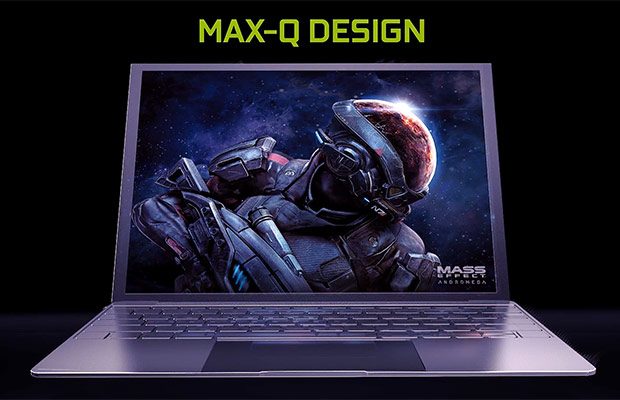
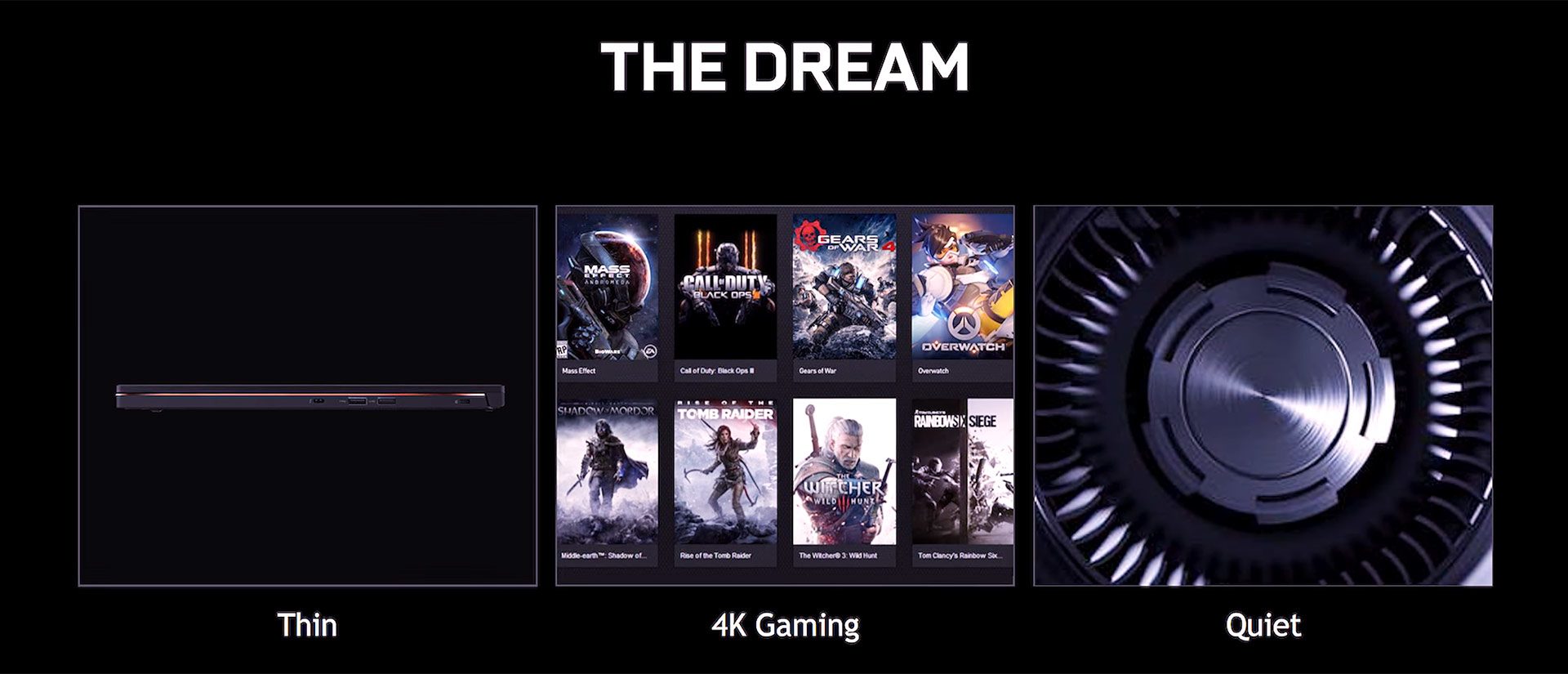
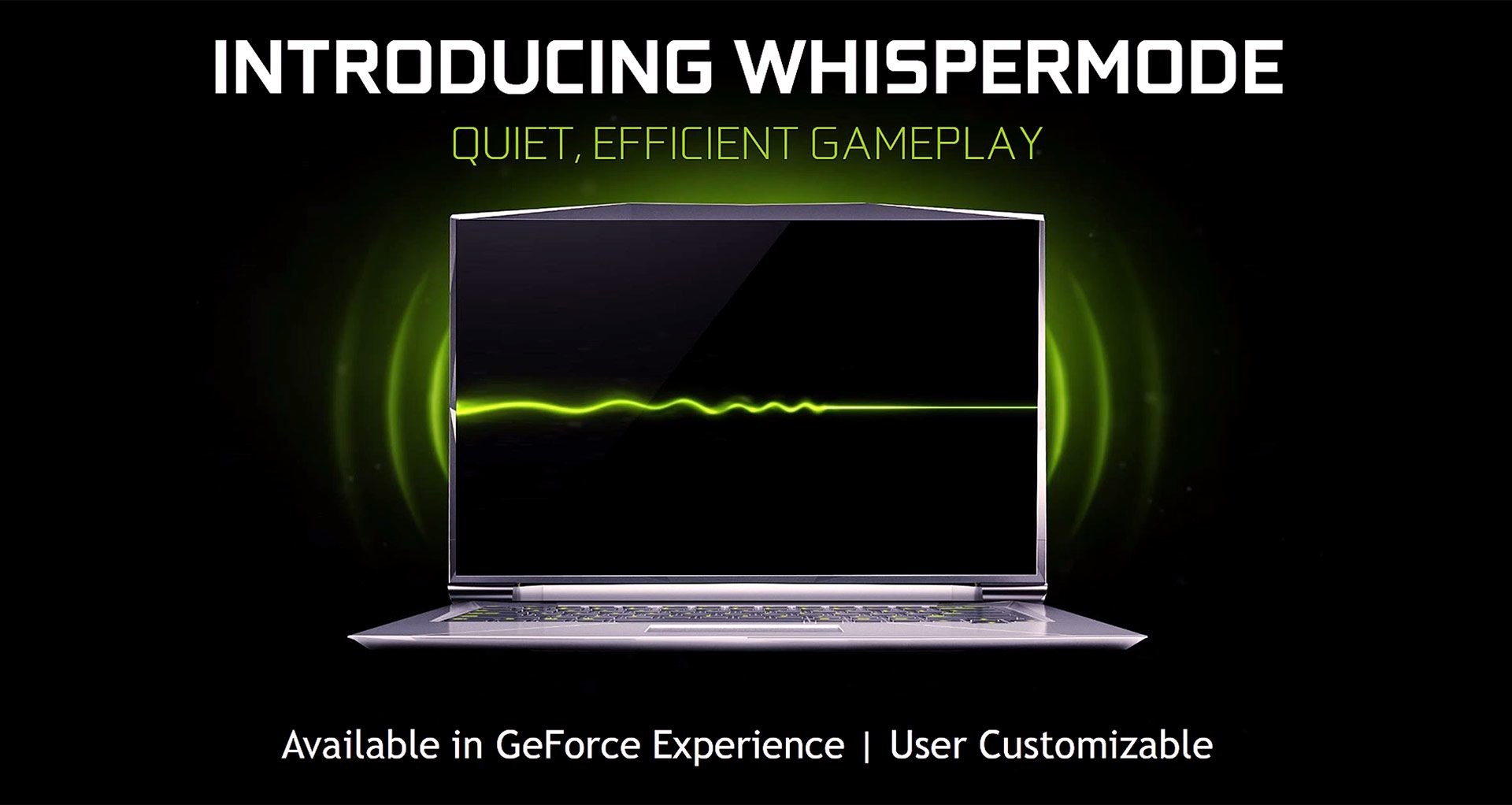

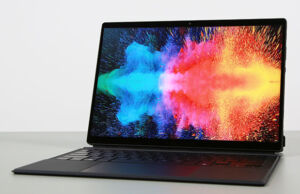

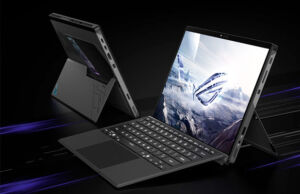

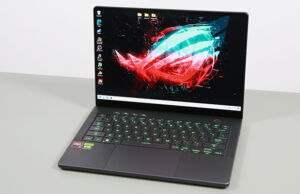
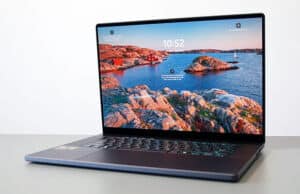

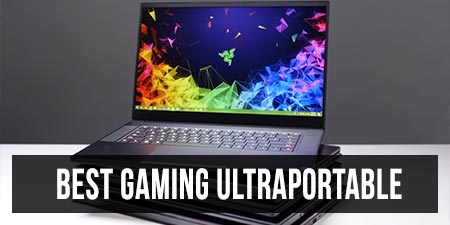
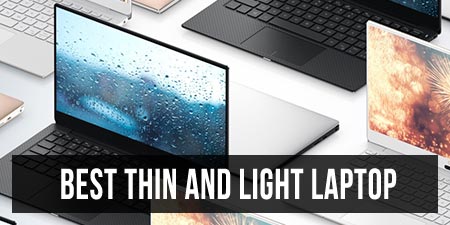
Christoffer
July 5, 2017 at 8:22 pm
Where are the MaxQ 1060's??
Andrei Girbea
July 6, 2017 at 3:01 pm
There aren't any announced as far as I know. Yet
Simon
July 8, 2017 at 2:23 am
As far as I am concerned, there is already a series call Lenovo r720 which sells in China, equipped with GTX 1060 MAX-Q
eroneko
July 8, 2017 at 1:52 pm
Lenovo is selling a 1060 max-q version of legion y720 in China. I can't find more information about it.
adsadasd
November 12, 2017 at 12:49 pm
Yeah that is not a ultrabook, its quite fat
Vince BL
July 8, 2017 at 10:43 pm
I have read from a number of sources that The refreshed HP Omen coming out around July are supposed to have MaxQ technology (see laptopmedia for instance).
The 15" will max out at GTX 1060, and the 17" at 1070.
However, on HP US site I have not found any mention that those models are indeed MaxQ.
The 15" 1060 is also not yet available on the Hp store
I am following this closely because I am very interested in this model, but since it's not released in most countries there is still some confusion around it.
Andrei Girbea
July 9, 2017 at 4:08 am
Thanks, I'll keep an eye on it and update asap.
darren tuffs
July 13, 2017 at 3:14 pm
The 1060 MQ is available on HP Omen 15 just now, but with a 5-15% decrease in performance depending on who you listen too, between the MQ 1060 and normal 1060 that puts the 1060 MQ in a tricky position, the full fat 1060 is only 10-20% faster than the 1050 ti, so realistically, if we average those out a bit the 1060 MQ is probably only going to be around 5% faster than the 1050ti.
Now consider the price difference, the 1060 is £250 more. the exact same hardware in every other way except the GPU and the g-sync panel. would you pay for £250 for a 5% speed bump (and VR support (which ironically proves the 1050ti could do VR if they let it))
im struggling to consider the 1060MQ a worth while option.
Andrei Girbea
July 13, 2017 at 4:45 pm
That's more or less the case with the entire MaxQ offer right now, it's too pricey for little gains in terms of performance. You could also consider that MaxQ devices should be quieter, but even so it's darn hard to justify the price difference.
Personally, the only MQ laptops I'd consider would be those specifically designed for it. That means devices that are made to be as thin and light as possible for the given hardware, like the Asus Zephyrus, for example, in the 1080MQ segment. That's not the case with the HP Omen 15 or the Alienware 15 and other laptops that use existing designs with MQ hardware. If shopping in this latter category, I'd just wait for more designs to be released as of right now, or just get the standard non-MQ chip.
Matt
August 9, 2017 at 7:08 pm
Notebook check shows a much bigger gap between the 1060 and 1050ti- regularly 50-80% higher at 1080p ultra
If that is true there could be plenty of space for the 1060 max q between them
Jon
July 28, 2017 at 2:23 am
Where are the 14 inch models?
Andrei Girbea
July 28, 2017 at 2:58 am
I'm not aware of any right now? Am i missing some?
Christoffer Skoog
October 6, 2017 at 9:16 pm
You can add the Dell Inspiron 7577 on the max-q 1060 list
Andrei Girbea
October 8, 2017 at 4:11 am
Updated, thanks
Michal Vodrazka
December 16, 2017 at 2:56 pm
You can add Lenovo y520 to 1060 MQs
Pete C.
February 27, 2018 at 5:52 pm
Does this exist: a thin 17” w/ 1070MQ or 1080MQ ? (other than MSI and Razor)
Rayhan Rabbani
December 15, 2018 at 5:39 pm
I found MSI P65 Creator that have 1070 maxQ